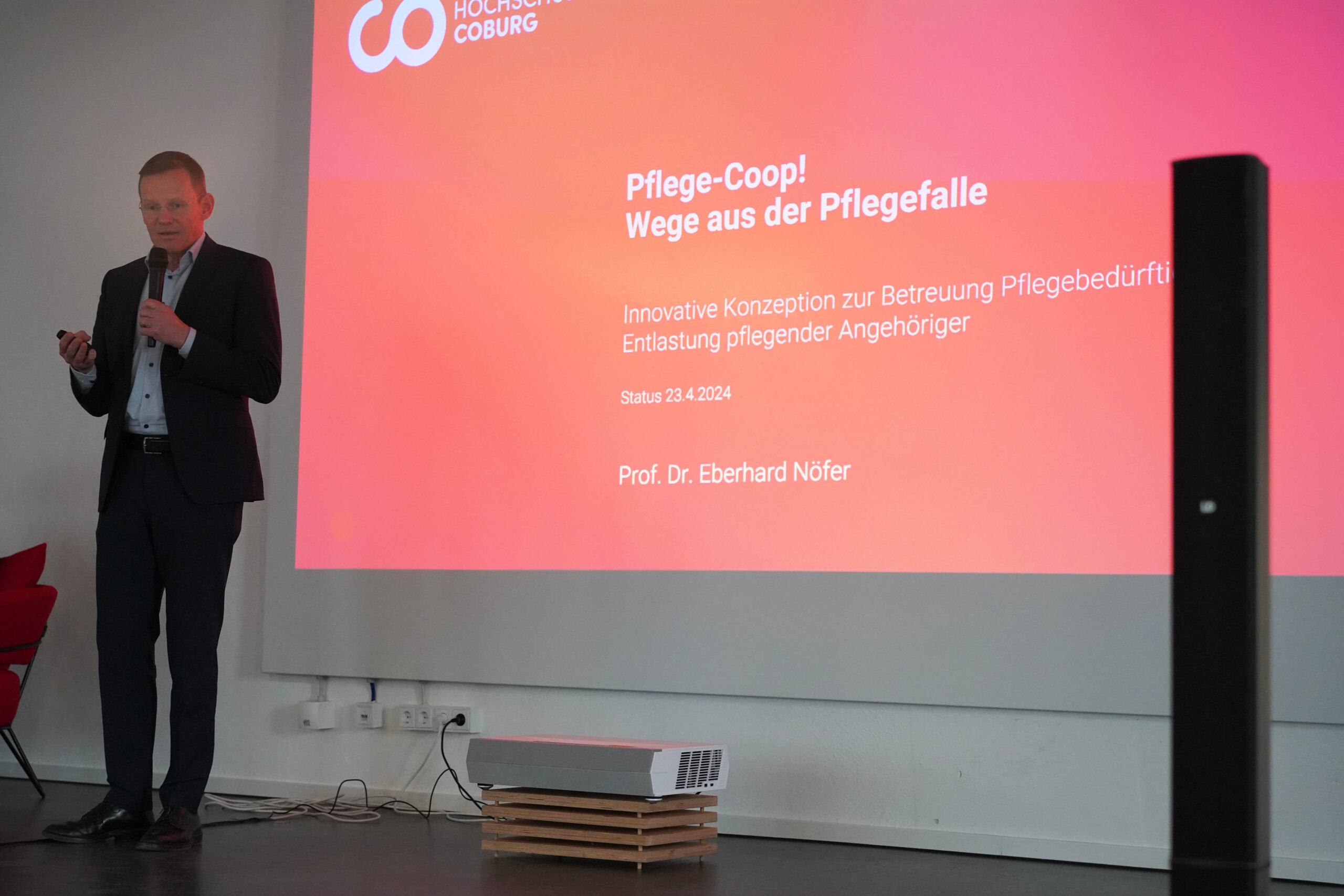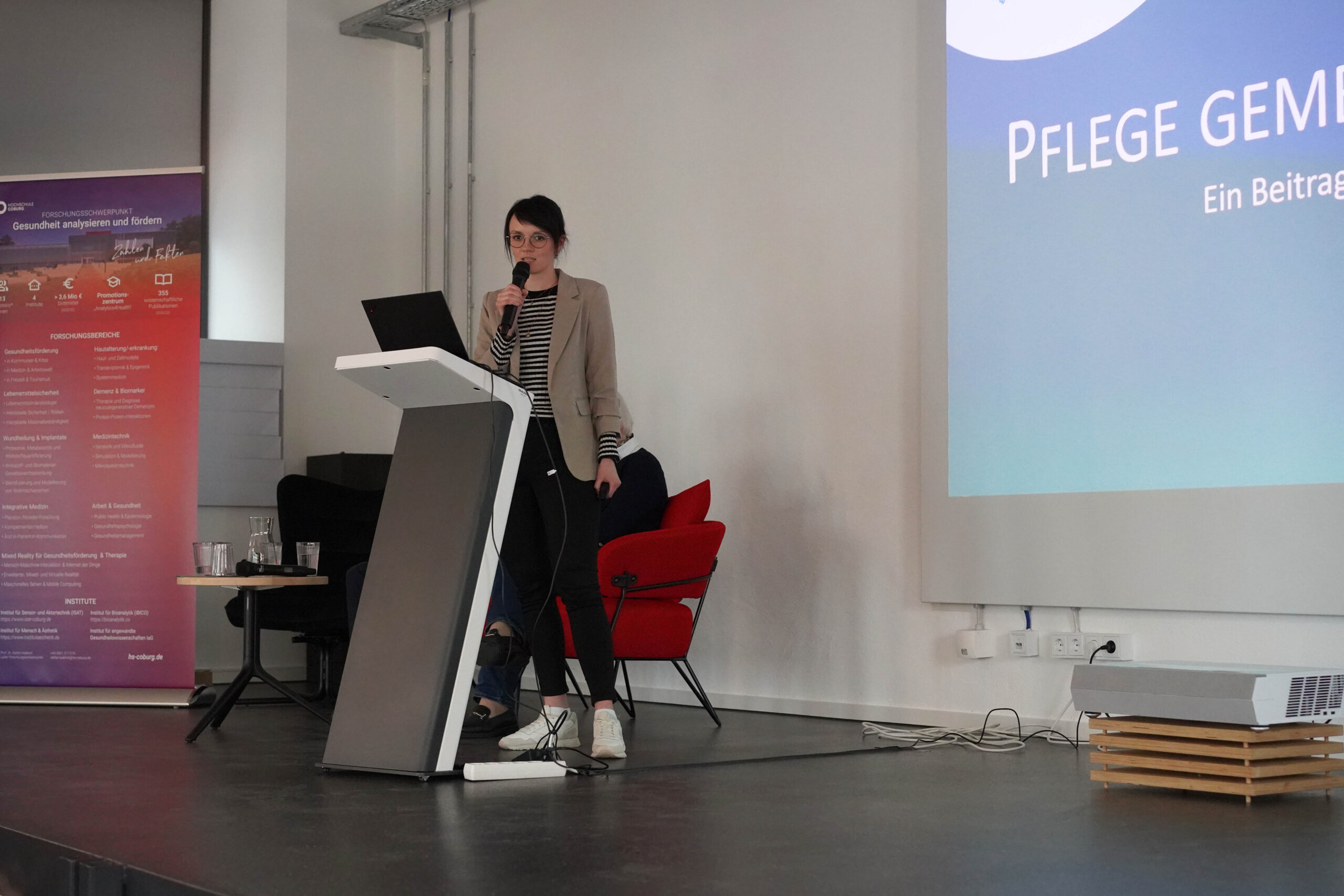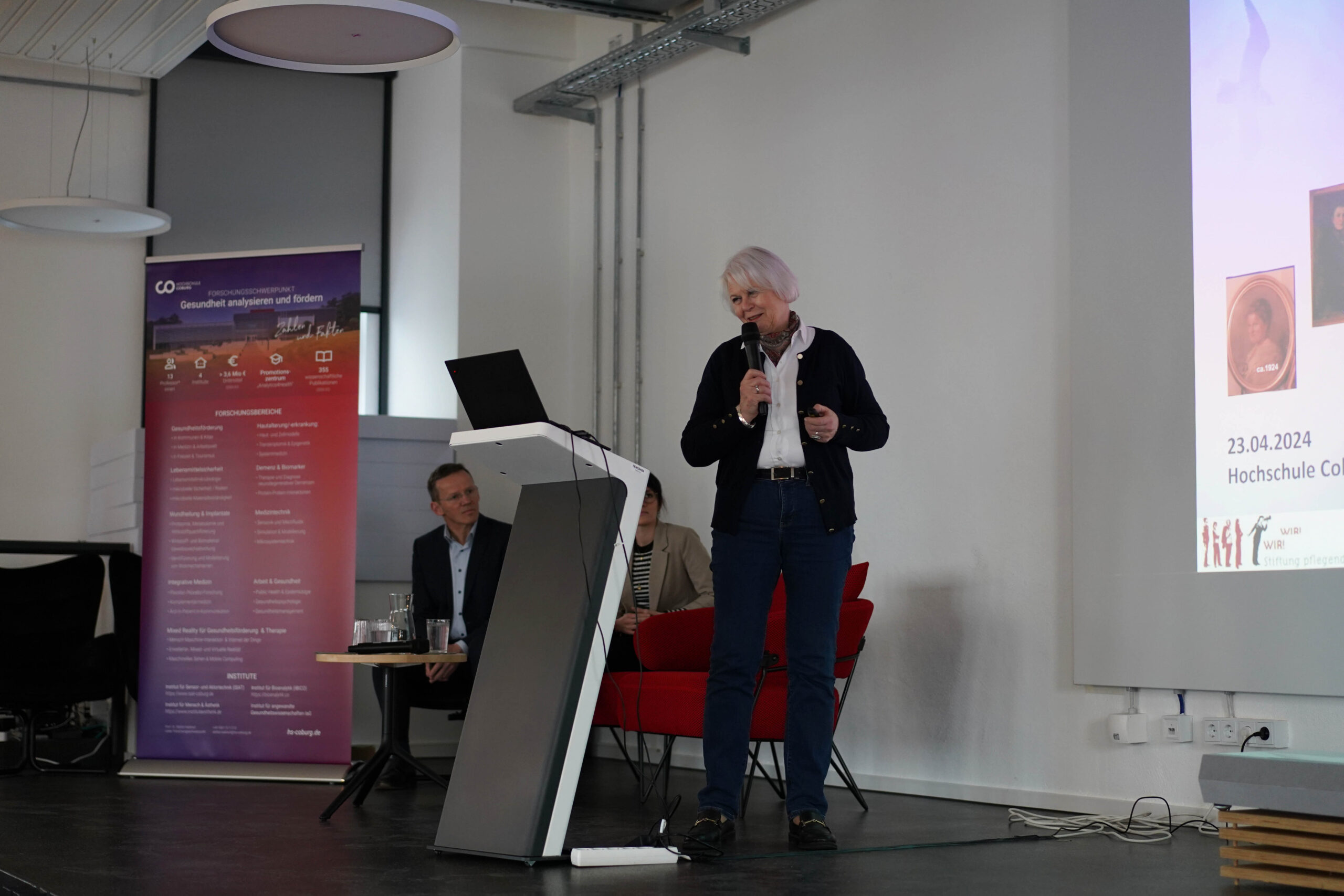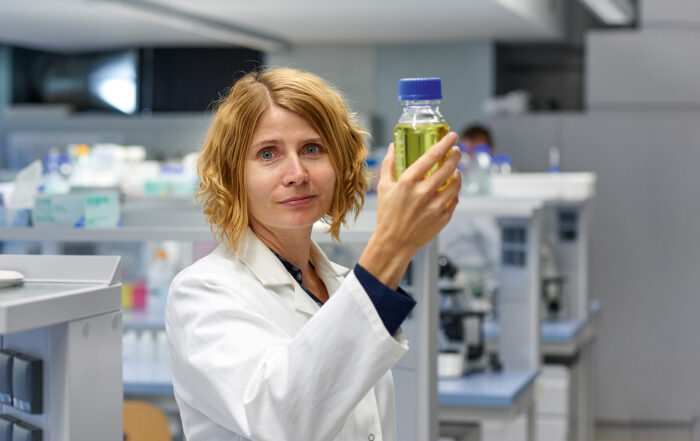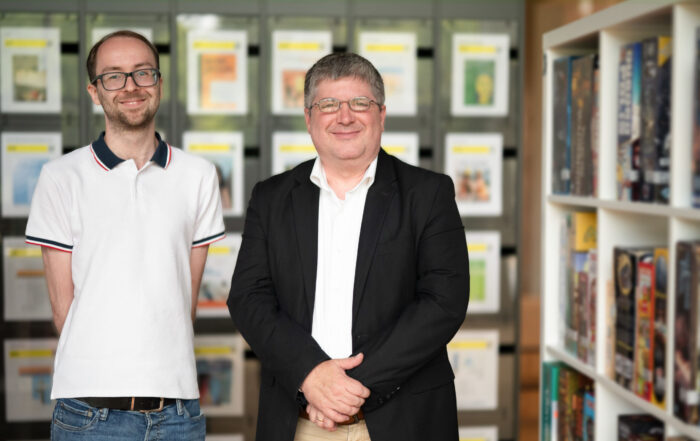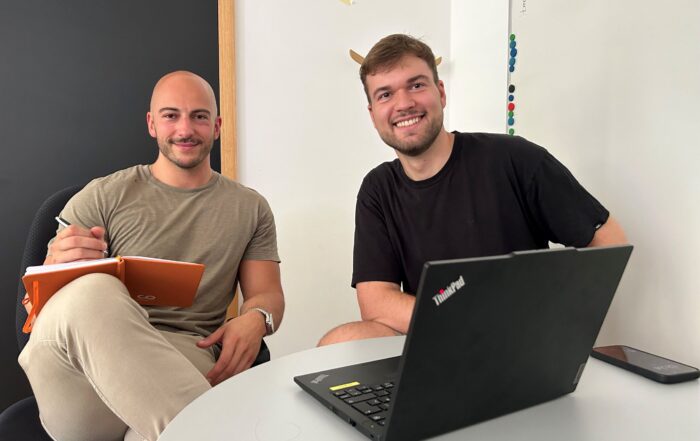24. May '24
from Cindy Dötschel
New models and approaches are needed to secure the care of those in need of care in the future.
This was the topic of the evening “Nursing care – what now?
Problems and solutions. 63-year-old Helmut recently retired.
Since then, he has been going shopping twice a week for a small allowance for his neighbor Elisabeth, who is in need of care.
He also mows her lawn.
Elisabeth is 80 years old and has difficulty walking, she is mentally fit and lives in her own apartment on the first floor.
The outpatient care service comes twice a day and her daughter helps her with the housework.
Because Elisabeth is supported, she will be able to live in her own four walls for a few more years.
The contact between Helmut and Elisabeth came about through the “Care Co-op!” care model, which Helmut signed up for.
All three benefit from the initiative: Elisabeth and her daughter are relieved, Helmut has found a voluntary activity in which he is valued and can help directly. Help for those in need of care, relief for relatives The example above describes a situation that can arise when the “right” people are brought together.
The “Care Co-op!” project is being developed with the involvement of Coburg University of Applied Sciences.
Prof. Dr. Eberhard Nöfer, who teaches and researches at the Faculty of Applied Sciences and Health, is responsible for the project.
The new model, which builds on existing structures and financial resources, is intended to relieve the burden on relatives and carers and provide better care for those in need.
As part of the themed evening “Care case – what now? Problems and solutions”, the scientist presented the project in his lecture “Ways out of the care trap”.
“The pressure on people in need of care and their relatives is increasing. We want to make a contribution to ensuring care for those in need of care in Germany,” he said in his presentation.
We want to change the system and base care on person-centered complex services within the framework of community-integrated citizens’ cooperatives and associations. Situation of family caregivers According to statistics, over 84 percent of the 5 million people in need of care recorded in care grades are cared for and looked after on an outpatient basis by their relatives, 51 percent of them exclusively.
“The figure only refers to people who have a care level or degree. Unlike ‘caregivers’, ‘caregiving relatives’ are not included,” says Brigitte Bührlen, Chairwoman of Wir!
Foundation for Caring Relatives.
Yet around five billion hours of care are provided by family caregivers every year, which is the equivalent of 3.2 million full-time jobs.
“It is always said that caring for relatives is the pillar of the system – so something has to change,” appealed Brigitte Bührlen.
She is of the opinion that family care needs to be legally anchored with status and job descriptions.
In addition, care insurance needs a reform that also provides for financial compensation. “There is now financial compensation for those who look after a child – it’s still difficult when it comes to care, where poverty in old age is inevitable.” Care as a regional field of action At the end of the themed evening, Vanessa Kaiser from Gesundheitsregionplus Coburger Land gave an overview of the care situation in the region and defined three fields of action.
Inpatient care services are generally well positioned.
As far as outpatient services are concerned, the situation is somewhat tighter in one part of the district.
“By 2041, the potential number of carers who are not professionals will decrease. The increase in the older population will be accompanied by a simultaneous decrease in the younger population, especially in the district,” predicts the expert.
Because care is always regional, we need to look at local developments, where the needs are and where we can start.
In order to achieve this goal, the first care conference of the city and district of Coburg took place at the beginning of the year, at which three key areas of action were defined: Securing skilled workers, strengthening home care and new care models that facilitate coordination between services and are cross-sectoral in nature.
“We need to work on networking, develop new job profiles and shift skills.” Further dates in 2024 The themed evening “Care case – what now? Problems and solutions” took place as part of the “Health! Knowledge for all” series.
The series is supported by the CREAPOLIS + design project as part of the federal-state Innovative University initiative.
Scientists and experts from theory and practice provide insights into current research and development.
In addition, interested citizens, stakeholders from the region and researchers can exchange ideas and network.
Two more theme evenings will take place this year.
On 25 June 2024, the topic will be “Healthy pregnancy – strong together” and on 12 November 2024, the focus will be on “AI to support individualized medicine”.
Next year, the themed evening “Living with kidney disease. Prevention, treatment, news from research” on January 28, 2025 will kick off the series. “Analyzing and promoting health” is one of the main areas of research at Coburg University of Applied Sciences, which is well networked in the healthcare sector and can look back on a wide range of collaborations from which the event format benefits.


